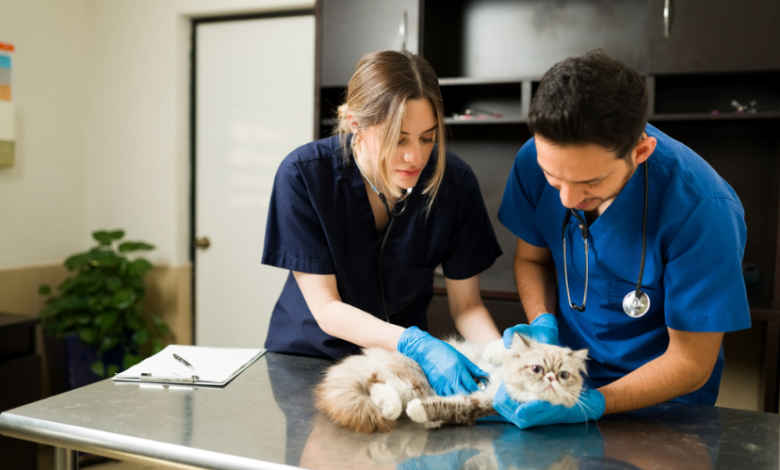Natural Approaches To Feline Wellness

Introduction To Herbal Support For Cats
Pet owners are increasingly exploring natural options to support their cats’ health and comfort. While modern veterinary medicine is essential, traditional remedies can sometimes provide additional benefits. One growing area of interest is the careful and informed use of chinese herbs for cats. When chosen and administered correctly, certain herbs can support digestion, immunity, skin health, and general well-being in felines.
Understanding The Basics Of Herbal Medicine
Herbal medicine involves using plant-based substances to promote healing and maintain health. In traditional Chinese veterinary practices, herbs are often combined into formulas designed to address the root cause of an issue rather than only the symptoms. This approach considers the animal’s overall condition, lifestyle, and environment.
Why Some Owners Choose Herbal Remedies
Many pet owners turn to herbs for a variety of reasons:
- To complement conventional veterinary treatment
- To offer a more holistic wellness plan
- To address chronic conditions that respond poorly to synthetic medications
- To support long-term health and vitality
It is important to remember that chinese herbs for cats should never replace necessary medical care, but they can serve as valuable supplements under professional guidance.
Commonly Used Herbs For Feline Health
Certain herbs are considered safe and beneficial for cats when used appropriately. Some popular examples include:
- Astragalus: Often used to boost the immune system and increase vitality
- Licorice root: Known for soothing inflamed tissues and supporting adrenal function
- Chrysanthemum: Used to address skin irritation and mild eye issues
- Schisandra: Supports liver function and helps with detoxification
- Rehmannia: Nourishes blood and supports kidney health
These are sometimes included in well-balanced herbal formulas specifically developed for feline needs.
See also: EHS and EMS Explained: Building a Smarter, Safer and Greener Business
Health Conditions That May Benefit From Herbal Support
Herbs may help manage certain chronic conditions or improve general health in cats. Examples include:
- Skin allergies and itching
- Joint stiffness in older cats
- Digestive disturbances
- Stress-related behaviors
- Weak immunity after illness
A veterinarian trained in herbal medicine can suggest specific chinese herbs for cats tailored to the pet’s condition and constitution.
Importance Of Professional Guidance
While herbs can be beneficial, they also have active chemical compounds that may interact with other treatments. This is why professional advice is crucial. A qualified veterinarian can:
- Determine the right formula and dosage
- Ensure there are no harmful interactions with medications
- Monitor the cat’s response and adjust treatment if necessary
- Provide guidance on proper preparation and administration
How Herbal Formulas Are Prepared For Cats
Herbs can be prepared in various forms such chinese herbs for cats as powders, capsules, tinctures, or teas. For cats, palatability is key, so powders are often mixed into food or liquids. The dosage depends on the cat’s size, age, and overall health.
Safety Considerations For Pet Owners
Before introducing any herbal product, owners should follow important safety guidelines:
- Never use herbs intended for humans unless approved by a veterinarian
- Avoid plants known to be toxic to cats
- Watch for signs of allergic reaction or digestive upset
- Store herbs safely out of reach of pets
Inappropriate use can lead to side effects, making expert supervision essential.
Combining Herbal And Conventional Treatments
Many veterinarians use an integrative approach that blends herbal remedies with conventional medicine. This combination can sometimes reduce the need for high doses of pharmaceuticals, minimise side effects, and enhance overall results. However, this must be done with careful planning and monitoring.
Real-Life Examples Of Herbal Success
Some pet owners have reported noticeable improvements in their cats’ comfort and mobility after starting herbal support. For instance, older cats with mild arthritis may move more freely when given certain chinese herbs for cats that promote joint health. Similarly, cats with chronic skin irritation might benefit from herbs that cool and soothe inflammation.
The Role Of Diet In Herbal Therapy
Nutrition plays an important role in the effectiveness of herbal treatment. A balanced diet supports the body’s ability to absorb and use the active components of herbs. Cats fed high-quality, species-appropriate diets often respond better to herbal therapy.
The Future Of Herbal Care In Veterinary Medicine
As interest in natural therapies grows, more veterinarians are pursuing training in herbal medicine. Research into the safety and effectiveness of chinese herbs for cats continues to expand, which may lead to more refined and widely accepted treatment protocols in the future.
Conclusion
Herbal remedies can offer valuable support for feline health when used with care and professional oversight. By understanding the potential benefits, risks, and best practices, cat owners can make informed decisions about whether to include chinese herbs for cats in their pet’s wellness plan. While these treatments are not a replacement for veterinary care, they can be a meaningful addition to a comprehensive approach to keeping cats healthy, happy, and active.



